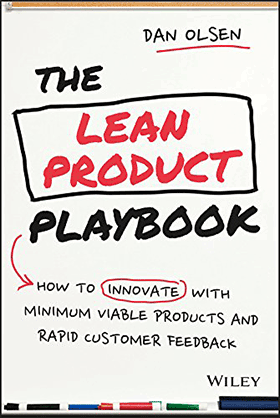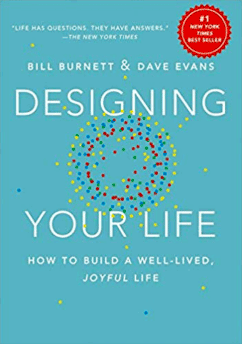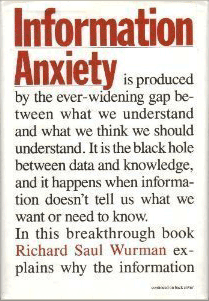Reviews: Book Reviews
UXmatters has published 68 articles on the topic Book Reviews.
Top 3 Trending Articles on Book Reviews
-
Book Review: The Lean Product Playbook
July 20, 2020No Comments Over the last several years, I’ve noticed a shift in the adoption of User Experience within organizations. This is encouraging, but might also require UX professionals to consider the skills and the roles that we bring to product teams. There are two key factors that are now impacting the way UX professionals work with product teams.
Over the last several years, I’ve noticed a shift in the adoption of User Experience within organizations. This is encouraging, but might also require UX professionals to consider the skills and the roles that we bring to product teams. There are two key factors that are now impacting the way UX professionals work with product teams.First is the adoption of new project-management methods, as well as the integration of UX deliverables into those methods. Early in my career, most software and Web projects followed a waterfall methodology, which is still common in manufacturing industries. The difficulty I frequently encountered with this approach was that it rarely allowed sufficient time for the integration of new knowledge. UX research often got squeezed out because it didn’t directly add business value. Often, from the beginning of a project, a product team essentially had to know exactly what they would deliver at the end of the project. The team’s inability to deviate from the original plan undermined the iterative nature of most UX design approaches. Read More
-
Designing Your Life Using Design Thinking
February 10, 2020 Design thinking. It’s probably something you use in your job every day to tackle thorny design problems. But have you ever thought about using it to design your life?
Design thinking. It’s probably something you use in your job every day to tackle thorny design problems. But have you ever thought about using it to design your life?In their book, Designing Your Life, Bill Burnett and Dave Evans outline a step-by-step process, using design thinking, to help people build lives in which they can find fulfillment and joy. This review highlights some techniques from the book that people have used successfully in achieving their professional and career objectives. To get a complete understanding of the Life Design process, though, you need to read the book. Read More
-
Book Review: Information Anxiety
March 18, 2019 One thing we can count on is that the quantity of information is increasing over time. The prevalence of information, its relationship to knowledge, and its impact on people’s decision-making faculties is becoming a more central concern for UX professionals.
One thing we can count on is that the quantity of information is increasing over time. The prevalence of information, its relationship to knowledge, and its impact on people’s decision-making faculties is becoming a more central concern for UX professionals.Richard Saul Wurman, the author of Information Anxiety, is a trained architect, a very prolific writer, the founder of the TED conference, and a well-known public speaker. Although he wrote this book 30 years ago, the ideas it presents are just as relevant today as they were then, perhaps more so. It’s a credit to the solidity of his thinking that many of his concepts seem to predict the world in which we live today. Read More
Columns on Book Reviews
-
Finding Our Way
Navigating the practice of Information Architecture
A column by Nathaniel Davis -
Innovating UX Practice
Inspirations from software engineering
A column by Peter Hornsby
All Articles on Book Reviews
- Book Review: Articulating Design Decisions
- Book Review: Escaping the Build Trap
- Book Review: Org Design for Design Orgs
- Book Review: Hooked: How to Build Habit-Forming Products
- Book Review: Nudge
- Book Review: Hackers & Painters
- Book Review: The Design of Everyday Things
- Book Review: Make Your Customers Dance
- Book Review: How Design Makes the World
- Book Review: A Field Guide to Lies
- Book Review: Laws of UX
- Book Review: That Will Never Work
- Book Review: The User’s Journey: Storymapping Products That People Love
- Book Review: Traction
- Book Review: The Jobs To Be Done Playbook
- Book Review: The Lean Product Playbook
- Book Review: The Innovation Stack
- Book Review: Weapons of Math Destruction
- Book Review: The Zombie Survival Guide
- Book Review: Change by Design
- Book Review: Do I Make Myself Clear?
- Book Review: Strategic Writing for UX
- Designing Your Life Using Design Thinking
- Book Review: How Not to Be Wrong
- Book Review: Innovation by Design
- Book Review: Intertwingled
- Book Review: Redesigning Leadership
- Book Review: UX Strategy
- Book Review: Designing Your Life
- Book Review: Factfulness: Ten Reasons We’re Wrong About the World and Why Things Are Better Than You Think
- Book Review: A Designer’s Research Manual
- Book Review: How to Get People to Do Stuff
- Book Review: Think Like a Futurist
- Book Review: Information Anxiety
- Book Review: Computers as Theatre
- Book Review: Human + Machine
- Book Review: Why We Fail: Learning from Experience Design Failures
- Book Review: Designing Voice User Interfaces
- Book Review: Sprint
- Book Review: Managing Chaos
- Book Review: Living in Information
- Book Review: Design Leadership
- Book Review: Evil by Design
- Book Review: Creative Confidence
- Book Review: Creative Change
- Book Review: Practical UX Design
- Books That Have Influenced Our UX Careers, Part 3: Books on Topics Other Than UX
- Book Review: User Story Mapping
- Books That Have Influenced Our UX Careers, Part 2: Applied UX Research
- Book Review: Webs of Influence: The Psychology of Online Persuasion
- Books That Have Influenced Our UX Careers, Part 1: Design
- Book Review: The Smarter Screen
- Information Architecture in Review, Part 2
- Book Review: $1 Prototype: A Modern Approach to Mobile UX Design and Rapid Innovation
- Book Review: UX for Beginners: A Crash Course in 100 Short Lessons
- Information Architecture in Review, Part 1
- Book Review: Managing Chaos
- Book Review: Prototyping Essentials with Axure
- Book Review: Wicked Problems: Problems Worth Solving
- Book Review: The Design of Design: Essays from a Computer Scientist
- The Top 5 Books About Form Design
- Book Review: Digital Ground: Architecture, Pervasive Computing, and Environmental Knowing
- Book Review: Sketching User Experiences
- Book Review: Effective Prototyping for Software Makers
- Book Review: Information Dashboard Design
- Book Review: Designing Interfaces
- Book Review: Designing for Interaction
- Book Review: Paper Prototyping
New on UXmatters
- Linking Customer Experience to Business Results for Sustainable Growth
- Using AI to Design Better Mobile-App User Experiences
- Leveraging the Psychology of Color in UX Design for Health and Wellness Apps
- Elevating the User Experience and Fostering Loyalty: Accessible Design for Travel-Booking User Interfaces
- Using Data Analytics to Optimize the In-Store and Online Retail Experience